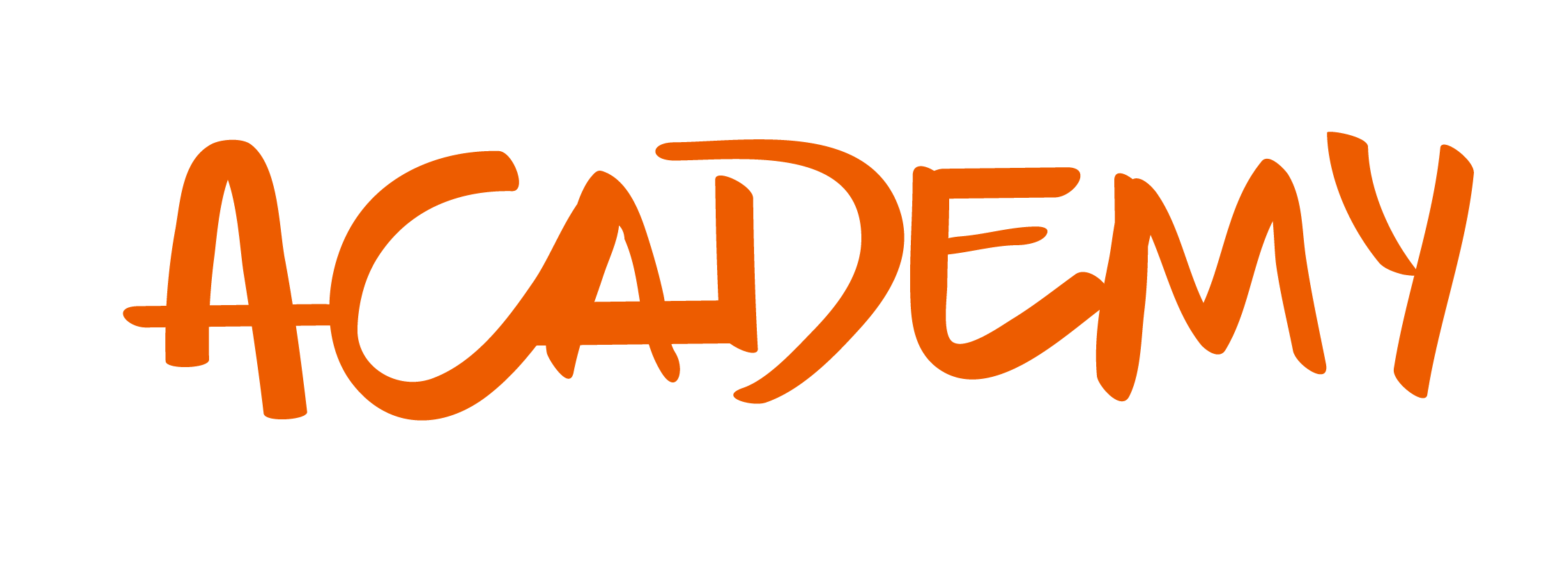Depending on the size of the agency, a financial department can be crucial for optimal creative performance.
To a proper performance and a good workflow in ad agencies, cross-departmental integration is crucial but many times not taken seriously. Oftentimes, the creative workers are the ones that take all the credit. They are the copywriters, and art directors and are the ones to give a good image to the agency and attract new clients, but by this point, we know that a good organization is what gives great imaginative ideas.
In many creative agencies, finance and creatives don’t interact. Agencies have different parameters that measure success which is difficult when there is no dialogue between operational and finance.
So now let´s see why aligning these both worlds would benefit your agency. Besides giving more insight and control, it can provide the financial department with a better performance. With these two matters taken into account, an agency has more confidence and transparency which ultimately brings success to the table.
Financial management in an Ad Agency
Financial management in an advertising agency is all about managing your income and your expenditure.
Many creative entrepreneurs say that finance is not their forte; they are driven by a creative person and find financial management boring or confusing. Financial management is an essential part of any enterprise, creative or not. So an understanding of financial matters can quickly pay dividends.
There are three ways of looking at money matters; each provides a different view of an enterprise and is useful in its own way.
Firstly, we need to understand the relationship between income and expenditure over a particular period of time and whether income exceeds expenditure or not, resulting in a profit or loss. This period might be retrospective, as in the case of a set of historic accounts, or a forecast of expected performance for a future period. These “ profit and loss accounts” tell us about the financial performance over a period of time.
Secondly, the cash flow tells us exactly when money went into and out of the business bank account and is particularly useful in looking ahead at likely scenarios – the cash flow forecast. Even if a profit is a forecast for a future period, cash flow might be a problem if, at certain times, more money is coming in and out than coming in. Cash flow relates to the comings and goings of real cash and its management is crucial. Business failures are most often due to cash flow problems.
Thirdly, the Balance Sheet provides a snapshot of the financial position of both small businesses and larger agencies, by showing the balance between its assets and its liabilities at a point in time, usually the last day of a financial year.
Small and large agencies have to prepare accounts for HM Revenue and Customs (HMRC) and any investors or funders, but the first purpose of accounting is to enable the owners and managers to understand their business properly so that they can manage it efficiently. And to get a true financial picture, all costs need to be calculated and understood. These matters are particularly important in preparing accurate budgets for projects and charging the right prices to clients.
It pays off to plan your finances strategically. Not only it is a matter of good financial management to forecast your marketing agency’s income and expenditure, but it’s also essential if you are to attract investment from other people or other digital agencies. Any investor, from the commercial or the public sector, will need to be convinced that their money will pay dividends, either in the way of a financial reward or public benefit.
There are many ways to plan your advertising strategy in order to get the necessary finance for your creative enterprise, including personal investments from the people involved, grant funding, and equity investments from third parties such as friends or fans. Larger investments are provided by more commercial investors but many small agencies have used “crowdfunding” or “fan financing” to get their funding and make themselves bigger.
Equity financing involves selling shares in the creative agency and consequently, there are repercussions for ownership and control of the business. A suitable organizational structure that needs to be chosen if raising money this way is the financial strategy.
Raising money and managing finances is connected to other issues including structure, client needs, and relationships with funders and or investors. It will be necessary to take advice from account services and account executives on financial issues as well as legal advice. At the same time, there are plenty of opportunities to use creative services to raise money in new and imaginative ways.
What is a financial department in an ad agency?
A finance department does the accounts management of an ad agency and is responsible for obtaining and handling funds on behalf of the agency. This department controls the cash flow of the agency, the income, and expenditure in addition to ensuring effective business running with minimum mishaps.
Besides traditional roles such as handling payroll, income, and expenses, the finance department checks the advertising budget for ad campaigns and other key investments, and other more traditional responsibilities that also include economic analysis to improve key business strategies.
What role does the finance department have in an ad agency?
A good workflow in the financial district can have a tremendous impact on an agency, even more so in smaller agencies. Besides supervising the inflows and outflows of money, a finance department has other roles such as:
-
Provide information to management
The finance department team provides critical information to the marketing department and other departments such as the creative department and the media department, for effective management of the whole agency. The department provides insights and feasible reports that inform the production department about management judgment crucial for satisfying the agency’s needs. For example, when launching a new service or product in the market, the finance department’s functions include supporting its management with good financial advice, relaying a funding plan, and developing fallback measures.
-
Manage equity
The finance department must efficiently manage the agency’s equity, that is to say, it realizes an agency’s assets investment and optimization through calculated business strategy to maximize profits and have optimal project management. The agency uses this information to understand and recommend the agency’s specific projects such as social media planning and the target audience of the service provided as well as digital marketing strategies and measure their success rate. The department must do periodic reports that show the awareness of business investment opportunities.
-
Cash flow management
The department identifies, appraises, and outlines risk mitigation measures for the agency, the account directors and the creative directors both must have good communication in order to have optimal performance. Finance establishes risk control programs capable of predicting business ventures’ future performance to avoid exposing the agency to losses. For example, providing a forecast report showing all the possibilities of a recession or inflation that might affect industry activities.
-
Tax Management
Finance officers handle tax remittance reports and employee payroll issues. By resolving taxing issues of concern, the finance unit creates an enabling environment for government agencies to collect their due and avoid employees’ complaints.
Why is financial information crucial for creative agencies?
To begin with, finances are always on the lookout, creatives and creative directors should always see how their expectations and operational goals impact the agency. Creative departments are often considered the be-all and end-all of operations.
However, when we consider an agency lifestream, finances suddenly become more relevant. Financial results are the bottom line for every single business function and creative managers should use them to measure success.
Information regarding financial performance is not limited to the consolidated, individual results of departments. Instead, success must be measured as indirect contributions to business functions.
Finance is the language of business and success is measured in terms of cost and revenue.
How can a Financial department benefit an agency?
Your agency may have the world’s most creative team, but it has to be organized and financially in order, otherwise, your expectations of success can be dull. To help illustrate the multifaceted benefits of great financial management, here are seven ways it helps your team in your ad agency.
-
Customize client Requests
If you have ever dealt with invoices, you know that clients have individual needs, and catering to those requests is what encourages repeat and retain clients. A great financial department customizes invoices needs or stylistic wants, no matter the request.
-
Reconcile Vendor Invoices
Reconciling invoices is the process of matching data to invoices. Keeping track of all invoices and bills keeps your agency organized and everyone on it with a big smile. A great finance department is able to reconcile vendor invoices around projects the vendor is involved in or freelance invoices against their timesheets. Furthermore, the financial department help agencies minimize input and maximize output and reduce unnecessary data entry.
-
Simplify Expense Reports
Keeping track of internal expenditures often escapes the minds of a project team, but sometimes, some employees practice what the financial team and the project manager do, it helps them to be a more complete professional. The great financial performance takes the pressure off employees by reducing stress and simplifying the process. Automated software can individualize reports by each staff member and assign tasks and projects to each expense.
-
Good Cash Flow Management
Cash flow is the lifeblood of any agency. Without cash, profits are meaningless. If the amount of cash that comes overcomes the amount going out, then you’re on your way to success. A great financial department balances out positive and negative cash flow, and positive cash flow is needed to generate profit.
-
Follow up on Overdue Invoices
One of the major difficulties faced by nearly every agency is the issue of payment delays. Without automated billing systems and procedures, it’s nearly impossible for project teams to track down clients or partners that have outstanding invoices. Time is of the essence with a busy agency and overdue invoices can limit cash flow and productivity.
An effective finance department administration ensures that invoices are processed and accounted for.
-
Streamline the Billing Process
When business is booming and your creative team is busy around the clock, taking the time out of your day to send invoices can seem impossible. Likewise, ensuring that all completed work is invoiced, and all payments are diving across multiple invoices can seem downright impossible. A great financial department streamlines and automates the billing process to reduce any conflicts or headaches that might otherwise occur.
-
Simplify Year End Accounting
Whether your agency handles things in-house or outsources work to a CPA, a great financial administration makes year-end accounting a breeze.
How should financial managers work with creatives?
Financial departments analyze large financial overviews in spreadsheet format, often utilizing P&L reports, balance sheets, and cash flow overviews. Financial information should never be ignored, but sometimes for creatives, it reads like a foreign language.
Having this in mind, developing a methodology to share and distribute information is crucial. Financial information should be distributed in an easy and intuitive way that utilizes graphics. True collaborations can be made when both departments are willing to work from different sources, including information from both the financial and production manager. These can include recent project profitability, hourly productivity from employees, and budget performance.
About financial software
The best financial option for creatives of different types of advertising agencies integrates financial management systems with project management software. In this way, finance gets advanced accounting information, they get software that has been designed to encourage cross-departmental communication.
Robust software enables the financial department and the creative team to truly work as a team, from streamlining the agency and client billing process to adding customized details to invoices.
It helps you to stop wasting valuable time creating invoices, following up payments, and trying to figure out where are you standing as a business. This software makes invoicing painless, expense, and time tracking easy simple, and knowing how profitable you are easy. Whether you’re on your own or managing people in a team, life will be easier if you use this software.
Financial Department Structure
The better structure for the finance department is the one that meets and understands all demands, objectives, and challenges inside the agency.
This goes for both internal processes and external relations. After all, the sector has many other equally important responsibilities.
It can also be thought from medium planning, anticipating the development of the organization and any new and more extensive demands.
Therefore, we will make an outline of this structure based on the size of the agency, so a better detail within each scenario can be foreseen.
-
Smaller Agencies
In the general metric of the best structure for the financial department, many point out a relationship between the size of the agency and the size of its sectors.
This has its load of veracity due to daily needs, demands, and outstanding issues about the finances that each organization accommodates in its tasks.
With smaller agencies what happens is that many of them invest in the figure of a financial leader only. Sometimes this figure can be the owner of the agency, acting on multiple fronts to fulfill the department’s main responsibilities.
The rest, an outsourcing service tends to occur especially for accounting and controllership.
-
Midsize agencies
It is customary to have a structure for the larger financial department. Accounting, account management, and treasury are the most common elements to compose the sector.
Other activities tend to be internalized by professionals who can take on the tasks, as is the case with a professional that is capable of taking care of the agency leadership.
-
Larger agencies
Absorbing internal demands and investing in specialists for each function, the best structure for the financial department of a large agency consists of:
- treasury.
- account management.
- accounting.
- risk management.
- tax management.
Each of those has its respective leaders and subordinates, who take care of the tasks common to that department.
Conclusion
By having a good read on this article we understand how important a good performance of the finance department influences and thrives the creative team to success. Depending on the size of the agency, the finance team will have more or fewer departments and employees but what is more important, is to give the creative team crucial information so as to know their workflow and organize their tasks to meet client expectations.















